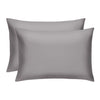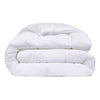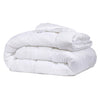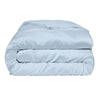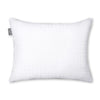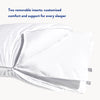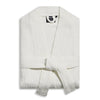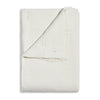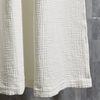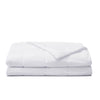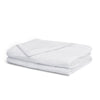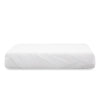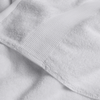
When you run out of laundry detergent or find yourself in a pinch, it’s tempting to reach for what’s readily available, like shampoo. After all, both shampoo and laundry detergent are designed to clean, so could shampoo double as a makeshift laundry detergent? In this article, we’ll explore whether using shampoo for your laundry is a good idea, how it compares to regular detergent, and what you should keep in mind before trying it out.
What is Laundry Detergent and How Does It Work?
Laundry detergent is specially made to tackle dirt, stains, and odors in your clothes. It combines powerful ingredients like surfactants, enzymes, builders, and stabilizers to get the job done.
Surfactants help water soak into fabrics more easily, making it easier to lift away grime. Enzymes target tough stains, such as those from food or sweat, breaking them down for a deeper clean. Builders boost the effectiveness of the surfactants, while stabilizers keep the detergent working well over time.
When you wash your clothes, the detergent surrounds and lifts away dirt, suspending it in the water so it can be rinsed out, leaving your laundry clean and fresh.
What Are the Benefits of Using Shampoo as Laundry Detergent?
-
Gentle Cleaning for Delicates: Shampoo, especially formulas made for fine or sensitive hair, offers a milder cleaning action than harsh laundry detergents, making it suitable for delicate fabrics like silk or lingerie.
-
Cost-Effective in a Pinch: When you run out of laundry detergent, shampoo can serve as a quick, accessible substitute, saving you an extra trip to the store.
-
Natural Alternative: Some people prefer shampoo as a more natural option, particularly those with skin sensitivities or allergies to the chemicals commonly found in traditional detergents.
-
Effective on Lightly Soiled Items: Shampoo cleans surprisingly well on clothes that are lightly soiled or have minimal staining.
-
Brightens Colors: Certain shampoos contain optical brighteners that can help revitalize the colors of your clothing, making them look more vibrant.
Can I Use Shampoo As Laundry Detergent?
Yes, you can use shampoo as a substitute for laundry detergent in certain situations, but it’s not an ideal replacement for every load. Shampoo contains surfactants, just like laundry detergent, that help remove dirt and grime from fabrics. However, because shampoo is designed for cleaning hair, it may not be as effective at tackling tough stains or heavily soiled clothes.
Shampoo is best used as a temporary fix or for washing delicate fabrics when you’re out of regular detergent. Use a smaller amount than you would with standard detergent, and always test it on a hidden area of the fabric first to make sure it doesn’t cause any issues. While shampoo can help in a pinch, it’s not recommended as a long-term solution for all your laundry needs.
What Types of Shampoo Are Best for Washing Clothes?
When using shampoo as a laundry substitute, clear, moisturizing shampoos tend to work best. You should avoid using shampoos that contain oils, silicones, or heavy conditioners, as these can leave residues on clothing.
Baby shampoo is an excellent choice due to its gentle formula and lack of harsh chemicals, making it safe for sensitive skin and delicate fabrics. Sulfate-free shampoos are also a great choice because they are less likely to contain ingredients that damage fabrics. Although clarifying shampoos have strong cleaning properties, they can sometimes be too harsh for regular laundry use. Always test a small amount on a hidden garment area before proceeding.
Is Shampoo a Safe Alternative to Laundry Detergent for All Fabrics?
While shampoo can be a useful alternative in a pinch, it’s not universally safe for all fabrics. It is ideally suited for delicate items such as silk, lace, or lingerie, as its gentle ingredients reduce the risk of damage.
However, you must avoid using shampoo to wash moisture-sensitive fabrics or those requiring special care, like wool or leather. Dark-colored garments should be tested on a concealed area first, since some shampoos may cause slight fading. For sturdier fabrics like cotton and linen, shampoo can be used cautiously, but it is less effective on heavily soiled items unless you use a strong clarifying shampoo. Also, always follow the garment’s care label guidance before using shampoo as a wash agent.
Can You Effectively Wash Clothes With Shampoo in a Washing Machine?
Yes, you can wash clothes with shampoo in a washing machine with some necessary adjustments.
-
Shampoo produces fewer suds than detergent, so you may need to use slightly more, about 1-2 tablespoons per load, depending on load size and soil levels.
-
Use cold or lukewarm water to help prevent shampoo residue from remaining on fabrics.
-
Never put shampoo in the fabric softener compartment.
-
For top-loading machines, add shampoo directly into the drum with your clothes.
Shampoo works well for cleaning lightly soiled items but does not provide the deep cleaning power of traditional detergents.
What Happens If You Use Shampoo Instead of Laundry Detergent?
Using shampoo instead of laundry detergent can give mixed results. Shampoo is made for hair, not fabrics. Its conditioning agents may leave clothes feeling softer. However, it often lacks the cleaning power needed for tough stains or odors. Heavily soiled items may not come out completely clean.
Shampoo also produces fewer suds than detergent. This can reduce agitation in the wash and limit cleaning effectiveness. Occasional use of shampoo won’t harm your washing machine. But frequent use can cause residue buildup and may affect your machine’s performance over time.
How Does Using Shampoo for Laundry Impact Colors and Whites?
The effect of shampoo on colored and white clothes depends on its ingredients. Shampoos with optical brighteners can enhance the vibrancy of colored garments, making them appear fresher. However, some shampoos may cause slight fading over time, especially on darker fabrics; that's why testing on a hidden spot before washing an entire load with shampoo is wise.
For white clothes, shampoo may not brighten as effectively as detergents containing bleach alternatives, and it can even sometimes leave a dull residue if not rinsed fully. Frequent use of shampoos with oils can attract dirt and reduce fabric whiteness.
Can Shampoo Damage Your Washing Machine Over Time?
Using shampoo in your washing machine every now and then probably won’t cause any immediate issues. But if you make a habit of it, you could run into problems down the line. Some ingredients in shampoo, like oils and silicones, don’t always dissolve completely. Over time, they can build up inside your machine’s pipes and parts, leading to blockages or making your washer less efficient.
To keep things running smoothly, it’s a good idea to run a cleaning cycle with hot water and a washing machine cleaner every so often. In the end, shampoo is best used as a quick fix, not a long-term replacement for regular laundry detergent.
Common Mistakes and Expert Tips for Using Shampoo to Wash Clothes
Avoid Overusing Shampoo
It’s easy to think that using more shampoo will get your clothes cleaner, but that’s not the case. Too much shampoo can leave a sticky residue on your fabrics and make rinsing a real hassle. Stick with just 1-2 tablespoons per load, and adjust a little if you have a bigger load or extra dirty clothes.
Don’t Use Conditioning Shampoos
Conditioning shampoos might sound like a good idea, but they’re actually not great for your laundry. These shampoos are made to coat your hair, and they’ll do the same to your clothes, leaving them dull and stiff. Go for a clear, basic moisturizing shampoo without oils or silicones for the best results.
Skip the Fabric Softener Compartment
Pouring shampoo into the fabric softener compartment is a common mistake. That part of your washer isn’t designed to mix and distribute shampoo properly, so you could end up with uneven cleaning. Always add the shampoo directly into the drum with your clothes.
Test on a Hidden Spot First
Before you wash a whole load, try the shampoo on a hidden part of your garment, like an inside seam. This way, you can make sure it won’t cause any color fading or weird reactions with the fabric.
Use Cold or Lukewarm Water
Hot water can actually make some shampoo ingredients solidify and stick to your clothes. To help the shampoo dissolve and rinse out better, use cold or lukewarm water. This will help your clothes come out cleaner and fresher.
Final Thoughts
In summary, while shampoo can serve as a temporary substitute for laundry detergent in a pinch, it is not an ideal long-term solution for washing clothes. Shampoo’s formulation is designed for hair, not fabrics, and although it may leave garments feeling softer, it often lacks the cleaning power needed to tackle tough stains and odors. Using shampoo occasionally is unlikely to harm your washing machine, but frequent use can lead to residue buildup from oils and silicones, potentially affecting your machine’s efficiency over time.
Looking to enhance your laundry routine while keeping fabrics safe? Explore the remarkable range at Miracle Made, featuring deep cleaning laundry detergent sheets designed to tackle tough stains and gentle options ideal for sensitive skin.
Sources:


